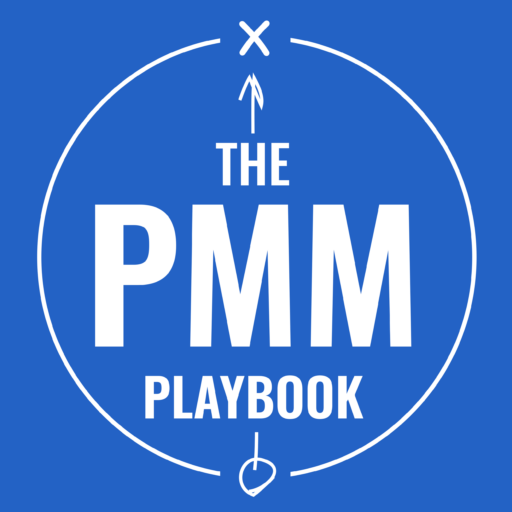You’ve just completed 30 grueling customer interview sessions to gain a deeper understanding of their perspectives. Now, you’re armed with insights into their challenges before discovering your product, the alternative methods they previously employed, and most importantly, why they favor your product. However, you find yourself with hours of diverse responses and no clear consensus. Among the multitude of answers, which ones are crucial for developing your positioning, value propositions, and messaging? Which competitive differentiators should you emphasize, and to which audience segments? You may have assumptions, but how can you be sure these are correct?
Instead of lingering in uncertainty, there’s a practical next step: Validation. Having conducted qualitative research and gathered opinions from a significant subset of your target audience, validating these findings with a broader group is essential. Among the various validation methods available to you, surveys are particularly effective for this purpose. If you’d like to learn more about the testing and validation process, sign up for The PMM Playbook e-learning course to get a framework that I like to use for the full customer research process.
Surveys provide a direct line of communication with both customers and prospects, delivering valuable data that can influence product development, marketing strategies, and customer engagement initiatives. Whether you aim to validate a new product concept, measure customer satisfaction, or understand the buying journey, surveys can offer the actionable insights needed to refine your strategies and tactics.
The value of surveys extends beyond mere data collection. For Product Marketing Managers (PMMs), survey tools are key to testing hypotheses about market trends, customer segmentation, and competitive positioning. They enable PMMs to quantitatively assess customer sentiments and preferences, facilitating a clear definition of market needs and helping to tailor communications effectively.
In this blog post, we will explore a variety of survey tools commonly used by product marketing teams worldwide. Here are the benefits, distinctive features, pros and cons, and pricing to help you determine which survey tool might be the best fit for you and your product:

Survey Tools
1. Google Forms
- Benefits: Completely free to use and integrates seamlessly with other Google apps, which is great for teams already using Google Workspace.
- Differentiators: Allows for real-time collaboration and editing by multiple team members, facilitating a cooperative approach to survey creation and data analysis.
- Pros: Supports unlimited surveys and respondents at no extra cost, providing excellent scalability for product feedback collection.
- Cons: Offers fewer customization and question types than more specialized survey tools, which may limit its use in complex market research scenarios.
- Pricing: Free.
2. SurveyMonkey
- Benefits: Offers a wide variety of question types and pre-designed survey templates that suit various research needs, making it versatile for different types of market research.
- Differentiators: Known for its robust reporting and analytics capabilities, SurveyMonkey provides detailed insights that can help product marketers understand customer preferences and market trends effectively.
- Pros: Features a user-friendly interface and integration capabilities with numerous apps, enhancing workflow automation.
- Cons: Some of the more advanced features come at a high cost, and customization options are somewhat limited in the lower-tier plans, which can be a hurdle for startups or smaller teams.
- Pricing: Free basic plan with limited features; paid plans start at $25 per month and go up to $75 per month for more comprehensive features.
3. Typeform
- Benefits: Renowned for both functional and aesthetically pleasing surveys, enhancing user engagement and improving response rates.
- Differentiators: Focuses on user experience with a highly engaging design, making it ideal for brand-focused product marketers looking to make a strong impression.
- Pros: Offers highly customizable templates and an intuitive design interface.
- Cons: More expensive than other tools and may not support the most complex survey needs.
- Pricing: The basic plan costs $35 per month, with higher tiers offering additional features.
4. Qualtrics
- Benefits: Provides advanced analytical tools and extensive customization options, making it suitable for sophisticated research needs.
- Differentiators: Stands out for its ability to handle complex research studies and deliver in-depth insights, which is critical for comprehensive market segmentation and product development.
- Pros: Offers a broad range of features that support detailed and nuanced research methodologies.
- Cons: Comes with a steeper learning curve and can be costly, which might deter smaller teams or those with limited research budgets.
- Pricing: Custom pricing, depending on the needs and scale of the organization.
5. Alchemer (Formerly SurveyGizmo)
- Benefits: Focuses on powerful functionality with enhanced data security and compliance, appealing to industries where data sensitivity is a priority.
- Differentiators: Advanced data management and security features set it apart from other survey tools.
- Pros: Offers flexibility and powerful reporting features; robust customer support.
- Cons: Higher-end pricing for advanced features may not be budget-friendly for all organizations.
- Pricing: Basic plans start at around $49 monthly, with more comprehensive plans available.
6. JotForm
- Benefits: Not limited to surveys, it allows for the creation of various types of forms, including registrations and payments, which broadens its application across different marketing activities.
- Differentiators: Features extensive integrations and widgets, including options for payment processing.
- Pros: Highly customizable and versatile, with a generous free tier.
- Cons: Utilizing its more advanced features can be complex.
- Pricing: Free plan available; paid plans start at $24 per month.
7. Zoho Survey
- Benefits: As part of the Zoho suite, it integrates well with other Zoho applications and numerous third-party apps, enhancing its utility in a connected business ecosystem.
- Differentiators: Offers multilingual support, enabling surveys in multiple languages to cater to a global audience.
- Pros: It strikes a good balance between features and ease of use and is offered at competitive pricing.
- Cons: Some limitations in question types and customization options when compared to more advanced platforms.
- Pricing: Free plan available; premium plans start at $20 per month.

